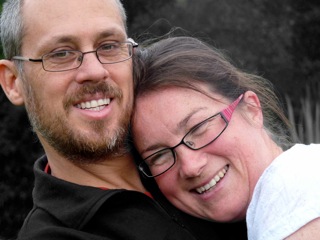Introducing Ekodo – Eko (ecological) do (way).
 By Sean Weaver, 23 August, 2010.
By Sean Weaver, 23 August, 2010.
This is the first of a series of blogs that Sean Weaver will write about Ekodo.
Eko (ecological) do (way) is the way of the eco-warrior. Ekodo turns environmentalism into a martial art. It is a professional development mentoring and networking program for dedicated planet protectors. It involves upskilling in assertive non-violence and emotional intelligence for sharply compassionate environmental practice.
Ekodo is foremost a practice (not a theory), and provides a training environment to enhance the development of skills to maximize one’s effectiveness as an agent of positive change in an interconnected world.
Like other martial arts, Ekodo is a body practice and draws inspiration from Zen – a practice of compassionate realization of the interconnected world as ourselves. In Ekodo (like Judo) we learn to use the energy in the room (even that of the opponent) to disarm. Ekodo too is a form of self-defense – the self is the planet, its threatened ecosystems, and vulnerable people, which suffer systematically at the hands of an unsustainable way of life.
Ekodo is a practice of harnessing the emotional, interpersonal, and political energy of the interconnected world in a similar way that a surfer harnesses the energy of waves. Like the surfer, this energy can be harnessed, but only with practice. And as with surfing, the more one practices, the easier it becomes to ride this energy. When we are in our flow, we become the wave: we become a walking solution, compassionate in all directions – including to ourselves.
It is about effectiveness, and sharpening it by offloading the emotional barriers we have to standing our ground and delivering a better future for our grandchildren. This offloading brings a joyful lightness to our efforts even in the midst of difficulty and the challenges that one is destined to face when living by ones ideals. One of those challenges is feeling good enough for the task, against a backdrop of negative and often judgmental talk (by others and ourselves). We think that we need to achieve something else, or win someone else’s approval before we can begin to be effective as compassionate agents of change. Worse still, we think that we need to become aggressive and manipulative in order to get the results we seek. Not so.
At the core of Ekodo practice is a form of radical self-confidence. This is not a self-confidence based on any kind of accomplishment. That can lead to arrogance. The self-confidence of Ekodo is cultivated from the recognition that we are legitimate from the beginning, not because we have achieved anything, or have won someone’s approval, but because we exist in the same way that the mountain exists. By taking the notion of an ecological, interconnected world seriously, we can soon see that in such a world there are no boundaries between this and that, between ourselves and others, between ourselves and all things in the world around us.
Therefore, our own existence (self) includes the blue sky, the most distant star, the mountains, the rivers, the forests, and the ocean. The mountain does  not worry that it might not be good enough. It just is.
not worry that it might not be good enough. It just is.
So too for the Ekodo practitioner: We are legitimate, just as we are, right here, right now. And this ground of self-confidence enables us to own our opinions and express them when we seek to bear witness to the suffering we see around us, with ecosystems being dismantled, people forced into unmitigated poverty, and avoidable adverse, human-induced interference in the climate system. We do not need to have our opinions endorsed by some authority for them to be legitimate. They are legitimate because they are ours. Therefore we do not need to seek approval for our views, or to justify our decision to pursue a quest to care for the Earth and each other. We do this because we must, because we are awakening to the suffering of the
world and we are compelled to do something about it.
 About Sean Weaver
About Sean Weaver
Sean Weaver is the founder and host of Ekodo with his wife and best friend Jo Campbell. They run Ekodo workshops in Wellington at the Tapu Te Ranga Marae in Island Bay, but have also run workshops in other parts of the country and in Fiji with the Econesian Society. They live in Wellington with their two boys Leo and Ruben. Sean and Jo make a living through their climate change solutions consulting business Carbon Partnership Ltd.
Sean has been involved in environmental protection work since 1986, specializing in forest conservation. He completed PhD in forest conservation and community development in Fiji in 1994. This was interspersed with contract work with the World Conservation Union (IUCN), WWF, Greenpeace, Forest and Bird, and Native Forest Action. He worked in Parliament with the Green Party and then took a lecturing position at Victoria University where he ran the undergraduate Environmental Studies program between 2001 and 2009. He has practiced Zen in the Diamond Sangha tradition since 1998.
See Ekodo Facebook Group for details and workshops:
http://www.facebook.com/group.php?gid=47683391767&ref=ts#!/group.php?gid=47683391767&v=wall&ref=ts
loading...
loading...
Tags: balance, ekodo, Emotional sustainability



Some tantalising concepts in here but I find this piece extremely abstract. How bout a few examples/stories of ekodo-in-action in your next blog? Just a hopeful & curious suggestion offered in a spirit of love…
loading...
loading...
Hi Rebecca, Thank you for your hopeful and curious suggestion and received as intended – warmly. The intention for this first blog was to provide a framework first and then follow with the kind of examples you are suggesting in subsequent blogs. Very best wishes…
loading...
loading...